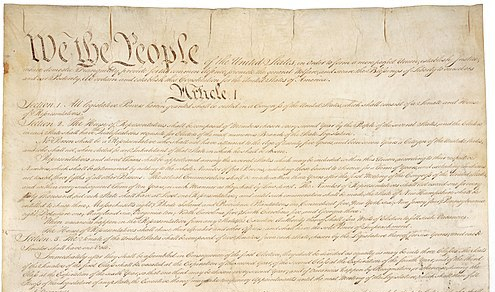
I’m not a big Cuomo fan, but when he made Fox peeps apoplectic by saying America “was never that great” I cheered. I teach my students to challenge the “American Greatness” myth and discuss the history of systemic oppression. This drives conservatives like Dennis Prager mad. With Wilks Brothers funding he created “PragerU” to attack lefty academics who “corrupt our youth.” But what would they like us to teach? Example:
What the Constitution Really Says About Race and Slavery
David Azerrad (The Heritage Foundation)
The argument that the Constitution is racist suffers from one fatal flaw: the concept of race does not exist in the Constitution. Nowhere in the Constitution – or in the Declaration of Independence, for that matter – are human beings classified according to race, skin color, or ethnicity (nor, one should add, sex, religion, or any other of the left’s favored groupings).
Too sad on too many levels:
- As so many scholars have pointed out, throughout U.S. history it has been white people who have emphasized their racial identity. This in order to bring them privileges based on race. After the revolution, even “free black men” were threatened by chattel slavery–as Steve McQueen’s film based on Solomon Northrup’s memoir revealed.
- Conservatives, so obsessed with “originalism,” must acknowledge that even if Jefferson wished slavery to end, he–like most Enlightenment thinkers–believed blacks were racially inferior. Moreover, his racism towards “Indians” is explicit in the Declaration of Independence where native people are called “savages.”
- Most historians consider the U.S. Constitution racist, because even though it did not mention race or slavery, it explicitly protected the institution and empowered slaveholders. Even the most respected dissenter to this view, Don E. Fehrenbacher, argues that in the antebellum period, North and South alike interpreted the Constitution as pro-slavery.
John Newton, a former slave trader, did not write Amazing Grace as an anti-slavery song. Yet the song became an anthem to the black struggle for freedom. These are the contradictions we must confront–contradictions brilliantly embodied in the work of Taylor Mac, which makes judy one of our greatest historians.